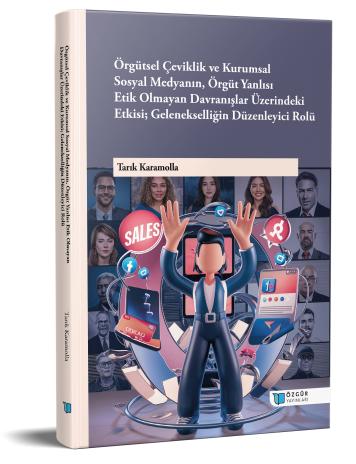
The Effect of Organizational Agility and Enterprise Social Media on Pro-organizational Unethical Behaviour: The Moderating Role of Traditionality
Synopsis
The purpose of this study is to reveal the effects of organizational agility and corporate social media on pro-organizational unethical behaviors and to determine whether traditionalism plays a moderating role in the relationship between these variables. The sample of the study consists of managers working in Turkey's top 500 industrial companies determined by the Istanbul Chamber of Industry every year (n = 500). In this study, data were obtained with the help of a questionnaire consisting of the Organizational Agility Scale developed by Chen (2012), the Corporate Social Media Scale designed by Cai et al. (2018), the Pro-Organizational Unethical Behavior Scale developed by Umpress et al. (2010), and the Traditionalism Scale designed by Thanissaro (2018). The data obtained were analyzed with the help of partial least squares method variance-based structural equation modeling (KEKK-YEM). According to the findings of the study; organizational agility has a negative and significant effect on pro-organizational unethical behaviors. On the other hand, it has been observed that corporate social media does not have a significant effect on pro-organizational unethical behaviors. In addition, while it was not observed that traditionalism did not play a moderating role in the relationship between organizational agility and pro-organizational unethical behaviors, it was found that managers with high levels of traditionalism exhibited pro-organizational unethical behaviors with increased use of corporate social media. Therefore, it was determined that traditionalism has an increasing and moderating role between corporate social media and pro-organizational unethical behaviors. Finally, after emphasizing some limitations of the research, some suggestions were made to company managers and employees based on the research findings related to the subject, and suggestions for future research on similar topics were presented.

